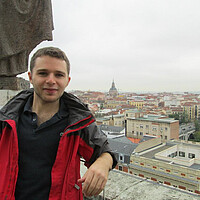College rankings: Who's on the Top 20 sober schools list?
Loading...
Do you equate college with learning – instead of partying?
Then, apply to Brigham Young University, which was crowned the nation's "most sober school" for 17 years running.
Amid the college rankings craze which pits universities against one other in a vaguely-defined methodology, Princeton Review announced on Monday its list of the Top 20 Sober Schools in the United States, based on a nationwide survey of 130,000 students.
As opposed to the debauchery ranking of the mostly-public Top 20 Party Schools, many of the "stone-cold sober schools" are private Christian colleges or military academies.
The ranking questionnaires ask students if they drink hard liquor, consume drugs, sip on beer, belong to Greek life, and how long they study weekly.
Princeton Review doesn't evaluate whether a college's overall studious atmosphere – or sobriety – correlates with a stronger average GPA or higher graduation rate. But a 2011 study of 11 Wisconsin universities showed that individual students who binge-drink – or consume more than four drinks in two hours – have lower GPAs.
Students who guzzle beer are less likely to spend time hitting the books in the library, says Robert Franek, author of the Princeton Review guidebook rankings, adding that the more sober schools have fewer fraternities and sororities.
At some of the sober schools, university administrators touted their achievement.
"We have a little fun with the rankings," says Brigham Young spokesperson Todd Hollingshead, commenting on a BYU tweet of chocolate milk – a pun on the Prince Review sober title of "Got Milk?" – which went viral. "Our students come for the culture that they see here, where there's no drinking or partying," Mr. Hollingshead adds.
The traditionally-Mormon school – located in Provo Utah – is a "dry" college in that students pledge to abstain from alcohol and tobacco.
Indicative of what most high-school students may be looking for, a top "party school" ranking doesn't dissuade student applicants, and in fact applications soar after landing on the top party school list, says Mr. Franek, mentioning that applications don't tend to rise at the "sober" schools.
But most parents and students tend not to consult these party rankings, as they rarely, if ever, raise questions about drugs and alcohol in college, says Rachel Blankstein, co-founder of Spark Admissions, a college consultancy firm.
“I think that one should take such a ranking with a large grain of salt," Ms. Blankstein says, adding that companies do these rankings "to get traffic to their websites."
But the Princeton guidebook author says that the rankings could provide an applicant with valuable information and prompt discussion. "Students need to know this so they can say: that’s going to be a great fit for me – or that’s not going to be a great fit," Franek adds.
The top 5 sober schools include: Brigham Young University in Provo, Utah, Wheaton College in Wheaton, Ill., U.S. Military Academy in West Point, N.Y., Calvin College in Grand Rapids, Mich., and Thomas Aquinas College in Santa Paula, Calif..
Taking the No. 1 spot among the "top party" schools was Syracuse University in New York, which expressed "disappointment" with the ranking, saying "we do not aspire to be a party school," in a statement.
Syracuse Chancellor Kent Syverud sent a letter to students, including this comment:
So let’s take the “party school” label as a wake-up call at Syracuse—a call that we have two things to work on. One is to make people around the world even more aware of the educational excellence here and our commitment to enhancing it and integrating it into every aspect of student life, including what happens on evenings and weekends. Two, we have to pay even more attention than our peers to the aspects of student life—and parties—that get in the way of students succeeding. High-risk use of alcohol and other drugs (not unrelated to a party culture) ranks number one on that list. "
The two lists are part of a recently-published 2015 Princeton Review book, "The Best 379 Colleges." The college guide relies on student feedback to offer more than sixty top-20 rankings ranging from academics, financial aid, athletics and dining halls.
Princeton Review conducts the biannual surveys, where they ask 80 questions about college life to an average of 343 students per school, the Associated Press reported. The company has published the college guide book since 1992.






